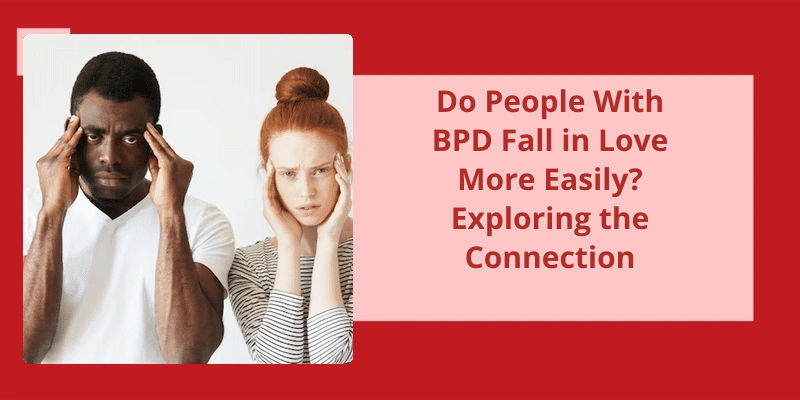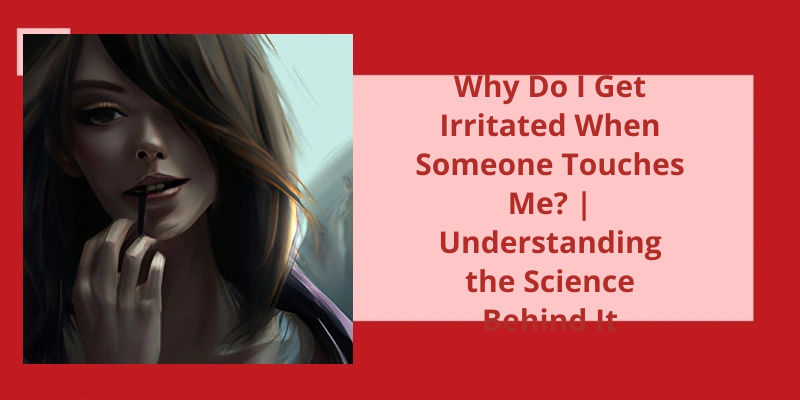Borderline Personality Disorder (BPD) is a complex and often misunderstood mental health condition that affects millions of people worldwide. While the symptoms of BPD can manifest in a variety of different ways, one of the most common areas of difficulty for people with this condition is in establishing and maintaining intimate relationships. People with BPD often have a history of tumultuous relationships, marked by frequent breakups, intense emotions, and rapid shifts in feelings towards their partner. Despite these challenges, individuals with BPD also have a reputation for falling in love easily, and many wonder why this might be the case.
Does BPD Make You Fall in Love Faster?
Borderline Personality Disorder (BPD) is a mental health condition that affects about 1.6% of adults in the United States. It’s characterized by intense and unstable emotions, impulsive behavior, and a distorted self-image. People with BPD often experience intense fear of abandonment and may go to great lengths to avoid being left alone. This fear can lead to intense feelings of love and attachment, which can sometimes develop quickly.
For some people with BPD, their intense emotions can make them fall in love faster than others. This can be due to their heightened sensitivity and emotional intensity. They often feel things more deeply than others, which can lead to passionate and intense attachments. However, this isn’t the case for everyone with BPD, and it’s important to note that falling in love faster doesn’t necessarily mean that the relationship will be any better or last longer.
BPD can make it more challenging to maintain a healthy relationship. People with BPD often have difficulties with trust and relationships, and may struggle to regulate their emotions. They can become easily overwhelmed by intense emotions, leading to outbursts and meltdowns that can be difficult for their partners to handle. Additionally, people with BPD may struggle with feelings of emptiness and may turn to their partners to fill this void, leading to codependency and unhealthy attachment.
Seeking treatment and therapy can be helpful in learning how to regulate emotions and build healthy relationships. It’s important to focus on building strong and healthy connections, rather than on the speed at which feelings develop.
How BPD Can Affect Different Types of Relationships (e.g. Romantic, Friendships, Family).
Borderline Personality Disorder (BPD) can affect various types of relationships, including romantic, friendships, and family. People with BPD may struggle with maintaining stable relationships due to their intense emotional experiences and fear of rejection or abandonment. Individuals with BPD may exhibit tendencies such as unstable self-image, extreme mood swings, and impulsive behavior, which can negatively impact their relationships with others.
It’s important to understand that Borderline Personality Disorder (BPD) can have a significant impact on a person’s ability to form and maintain healthy relationships. One of the hallmark traits of BPD is a tendency to become emotionally attached quickly, which can lead to impulsive and intense behavior. Let’s explore this further.
Do People With BPD Get Attached Quickly?
However, this intense attachment and idealization of their partner can quickly turn into an intense fear of abandonment. The fear of being abandoned can lead to clingy and controlling behavior, which can strain relationships and push their partner away.
People with BPD may struggle to maintain stable relationships due to their intense emotions and fear of abandonment. They may also struggle with emotional regulation, leading to outbursts and arguments with their partner. This can create a turbulent and unpredictable environment for their partner, making it difficult to maintain a healthy relationship.
Therapy and medication can be effective in managing symptoms of BPD, and can help individuals develop healthy coping mechanisms and communication skills to maintain stable and fulfilling relationships.
It’s also important for partners of someone with BPD to understand the disorder and be patient and supportive. Open communication and understanding can help create a stable and healthy relationship, but it’s important to set boundaries and seek support when needed.
Seeking help and understanding from a mental health professional can lead to effective treatment and the development of healthy relationships.
Conclusion
One common characteristic is their tendency to fall in love easily and quickly without getting to know the person. This can lead to difficulties in maintaining stable and healthy relationships, as their intense emotions can often interfere with their ability to communicate effectively and handle conflict in a constructive manner. Therefore, seeking professional help and finding effective coping strategies is crucial for individuals affected by BPD to navigate their intimate relationships successfully and experience fulfilling and lasting partnerships.






